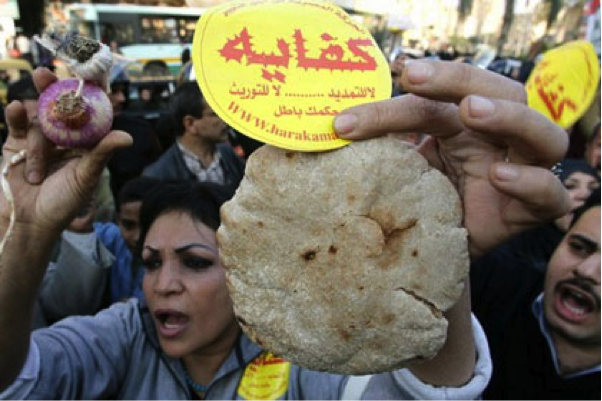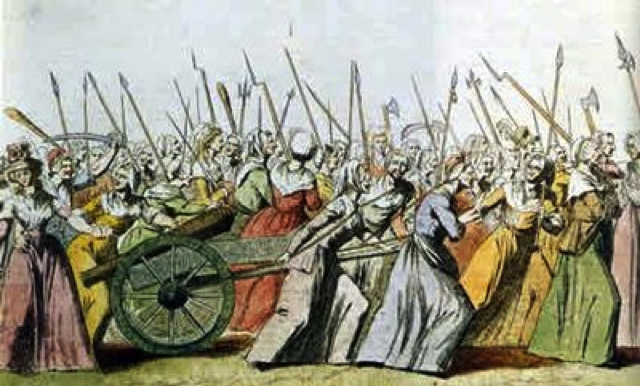My students have just read about the bread riots in France leading to the French Revolution in 1789. My course is about the history of food in Europe and we explore the ways food connects with change over time. Lots of change begins with a revolution. While we were reading about the women who flung loaves of bread at the king in Versailles, the faces of angry men in Cairo were raging over the price of grain as the Arab Spring portended a new revolution.
Egypt, like other countries in its region, feels the effects of declining grain stocks all over the world. Since the Middle East and North Africa depend so much on imported food, drought and the use of grain for biofuels in places like the U.S. and Russia cause price spikes that ignite protest. Wheat and corn futures are up over 40 percent and the U.S. diverts about 40 percent to the production of fuel for cars.
The women in Versailles demanded that the king find a solution to crop failures and the high taxes placed on bread. The men in Cairo see their governments as unable to feed their countrymen. The connection between food and political stability has been apparent for centuries. But now, the options for governments are not quite as simple as sending the king to the guillotine.


Author